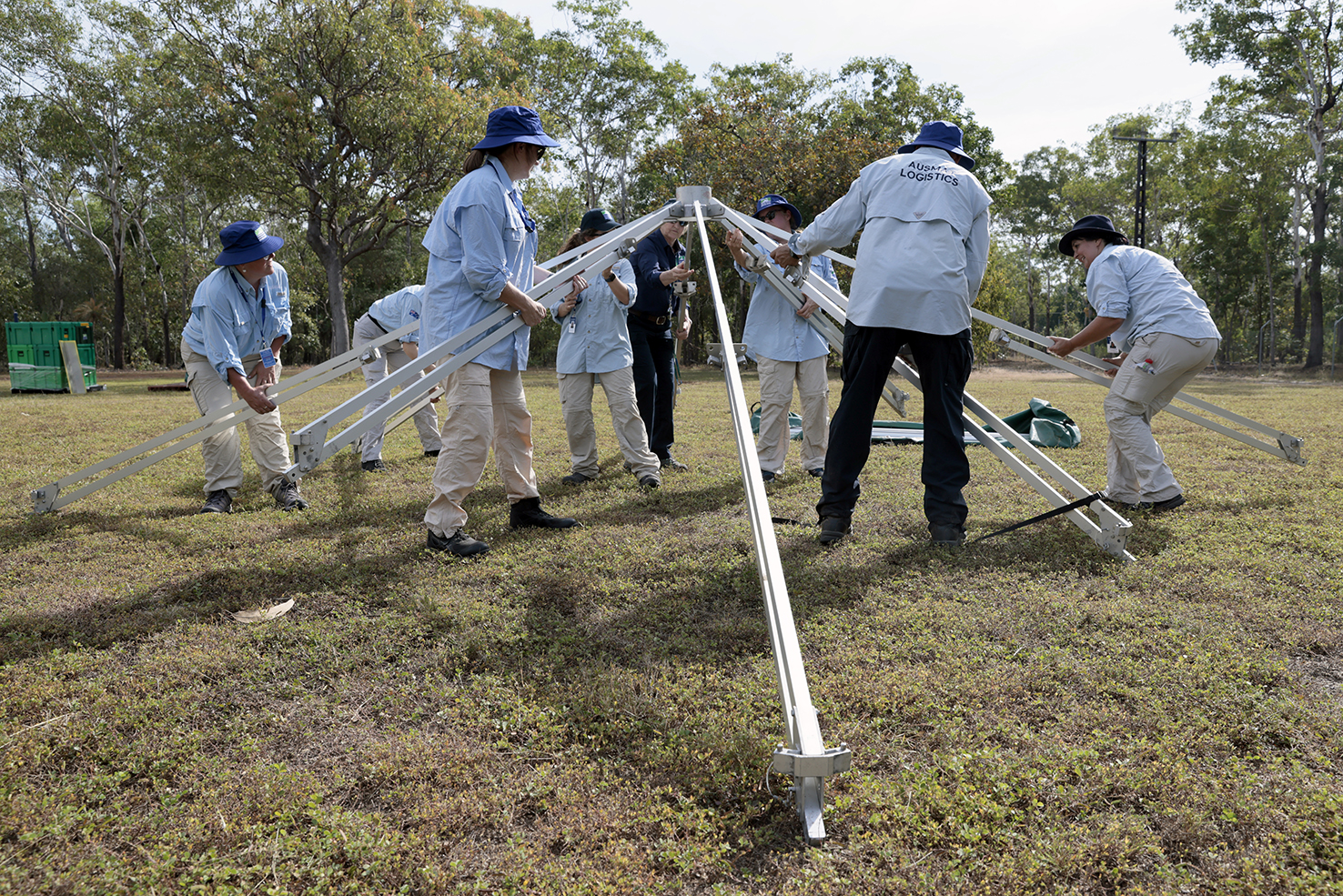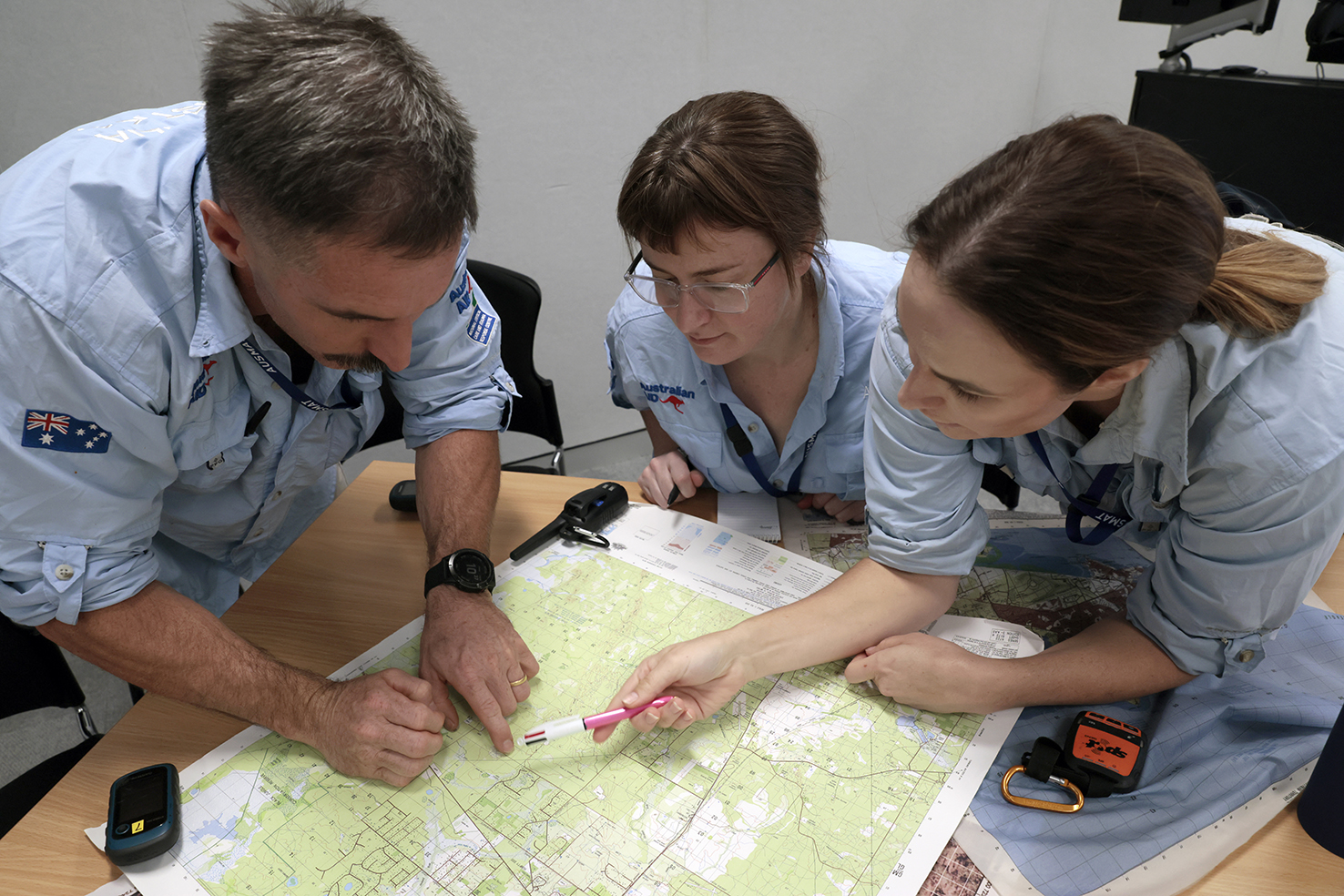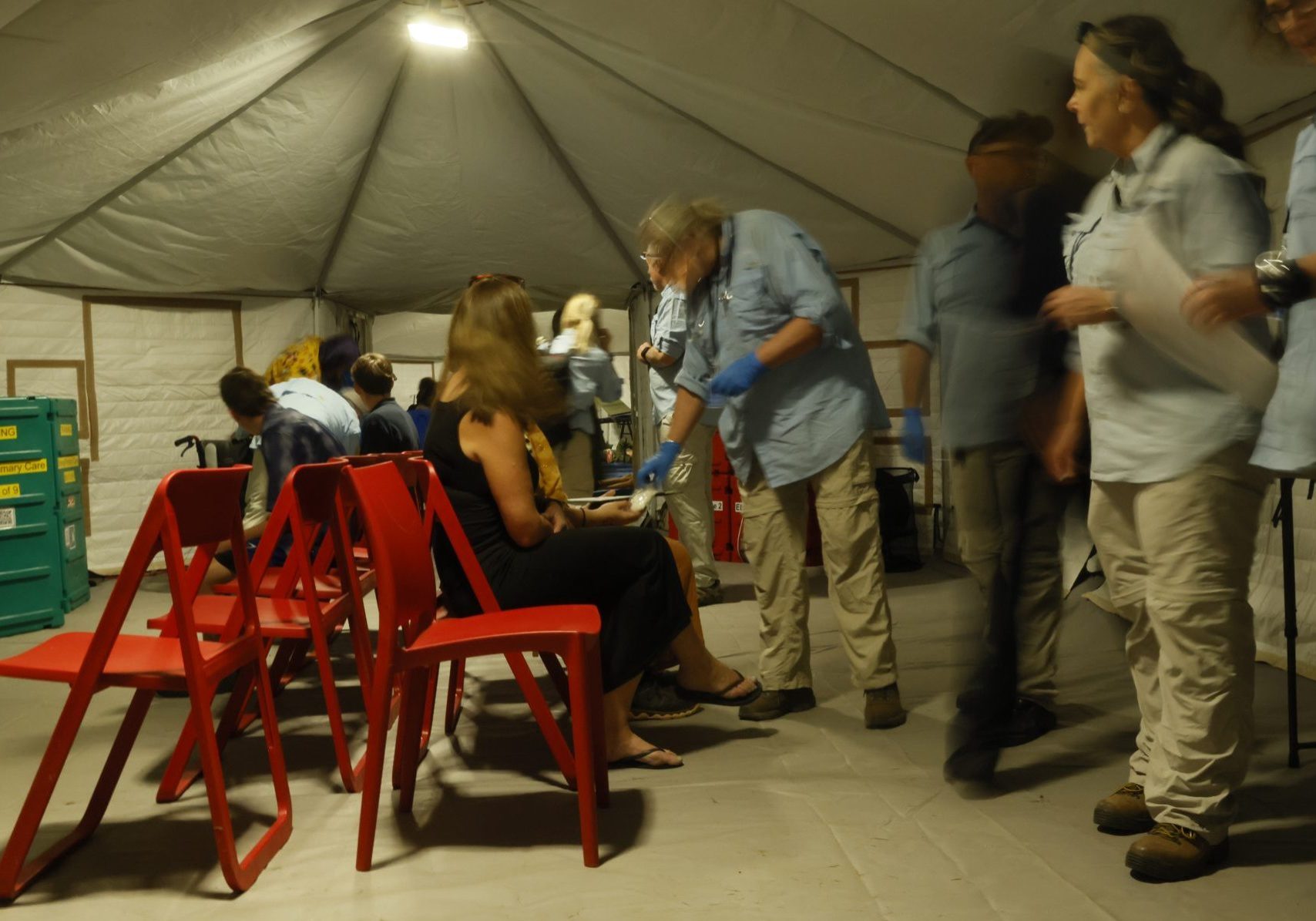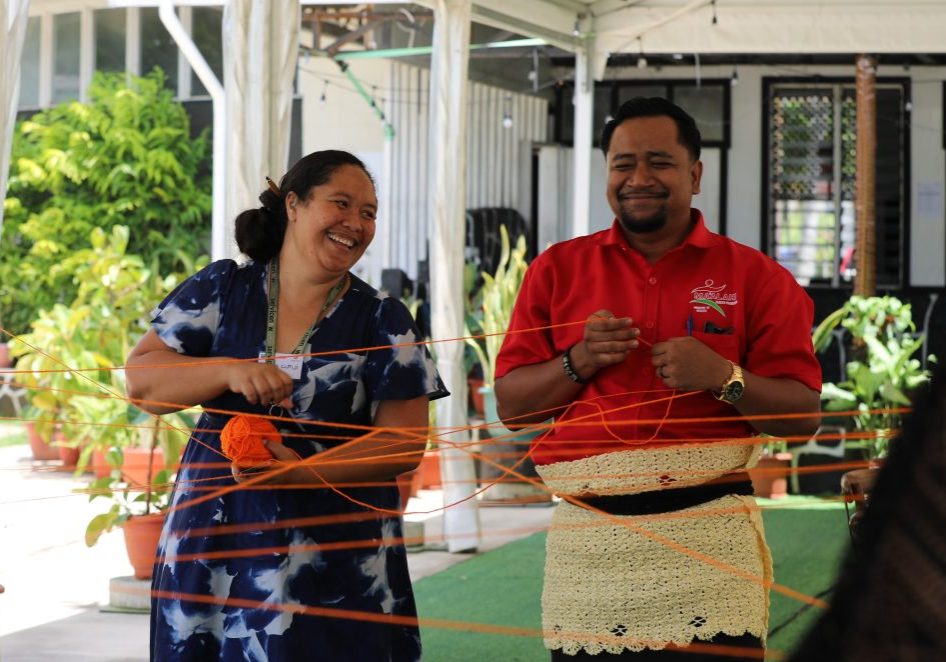The Power of Mentorship
Voices from new members
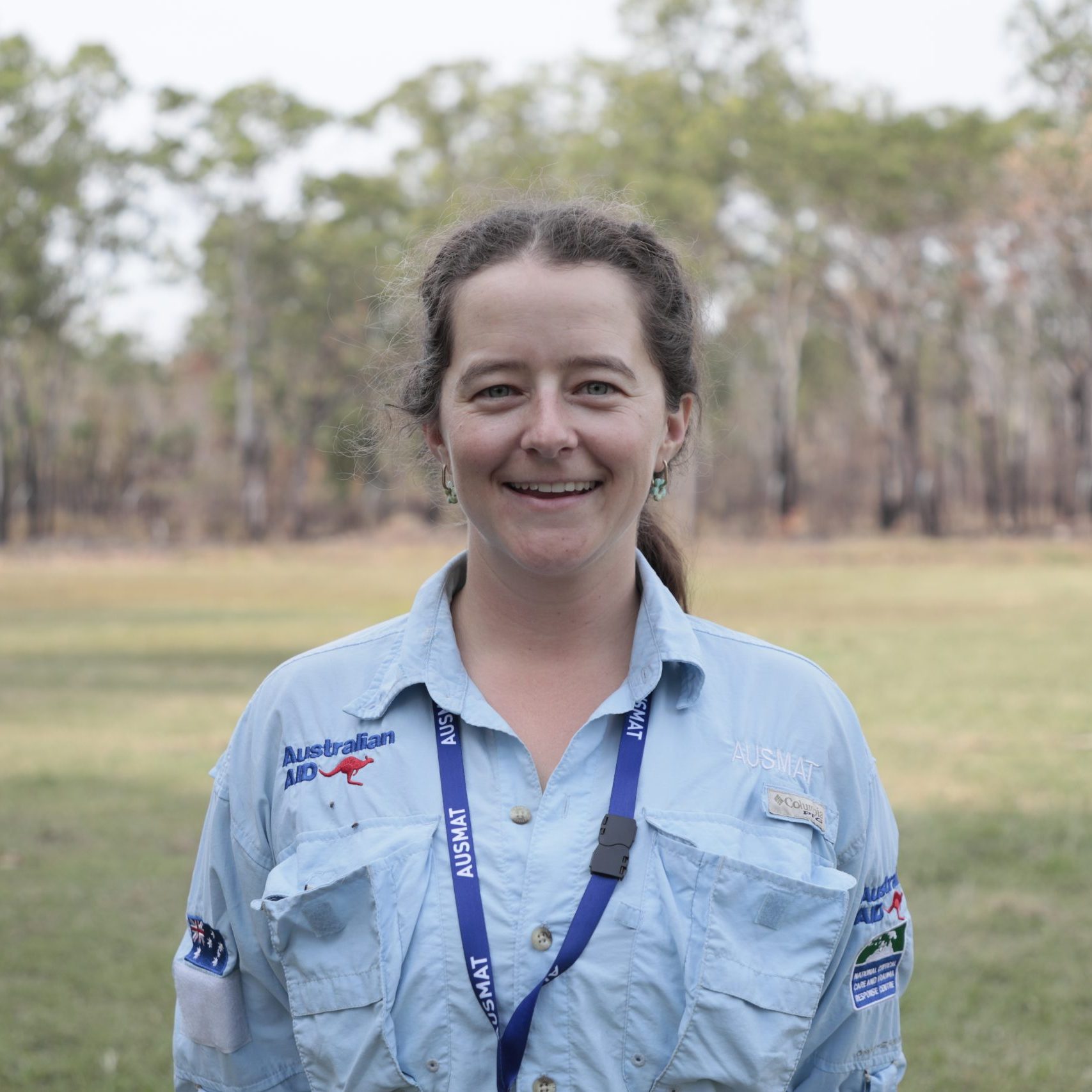
Claire Arundell
Rural Generalist Anaesthetist, Victoria
For many participants, the mentoring program adds a valuable layer of support to the training experience. Dr Claire Arundell, Rural Generalist Anaesthetist from Victoria, was among the participants who recently completed the course.
“It was really intensive and thorough training,” she says. “We had seven weeks of online learning and webinars beforehand, which provided a great foundation—especially for those of us new to humanitarian work.”
Claire was mentored by Dr Katherine Gibney, an infectious diseases and public health physician. Their discussions covered everything from AUSMAT protocols to the realities of deployment, including Katherine’s experience responding to the 2019 Samoa measles outbreak.
“She shared insights from her deployments and training, which made me feel well-supported and better prepared,” Claire says. “One thing that stayed with me was her advice: ‘Don’t be afraid to ask questions.’” That mindset helped Claire arrive in Darwin with confidence for the five-day residential component.
Mentorship relationships offer more than professional guidance. They create space for shared learning, reflection and support. These connections between experienced and newer AUSMAT members help bridge the gap between theory and practice, allowing lessons learned in the field to be passed on in meaningful and personal ways.
Dean Staunton
Firefighter, Northern Territory
For Dean Staunton, a firefighter from the Northern Territory, the AUSMAT Team Member Course was an opportunity to apply his frontline experience in a new context as a health logistician.
With a background in emergency response, Dean brought transferable skills to the course and the structured training and mentoring helped him understand the unique demands of AUSMAT deployments.
“I found the online learning resources really informative,” Dean says. “But it was the mentoring that added a whole new level of understanding.”
Dean was paired with Jenny White, registered nurse and midwife, and Assistant Director Response Capability for Disaster Preparedness and Management from Western Australia. Jenny is known for her leadership in managing COVID-19 quarantine operations on Christmas Island and in Tasmania.
“When I first connected with Jenny, I didn’t have many questions,” Dean recalls. “But she shared her deployment experiences, which helped me understand the role of a logistician in the field.”
One piece of advice that stuck with Dean came when he asked Jenny what makes a good logistician. “She said, ‘Just be open-minded and ready to help wherever you’re needed.’ I really focused on that.”
During the residential component in Darwin, Dean quickly saw the value of collaboration, observing firsthand how different roles came together in a coordinated response.
“The clinical teams brought their expertise, but it was clear that every role, clinical and non-clinical, was essential to the mission’s success,” he says.
Reflecting on the experience, Dean describes the course and mentoring program as both meaningful and transformative. “This was definitely a once-in-a-lifetime opportunity. I’m grateful for the training and support that prepared me to contribute as part of an AUSMAT team.”
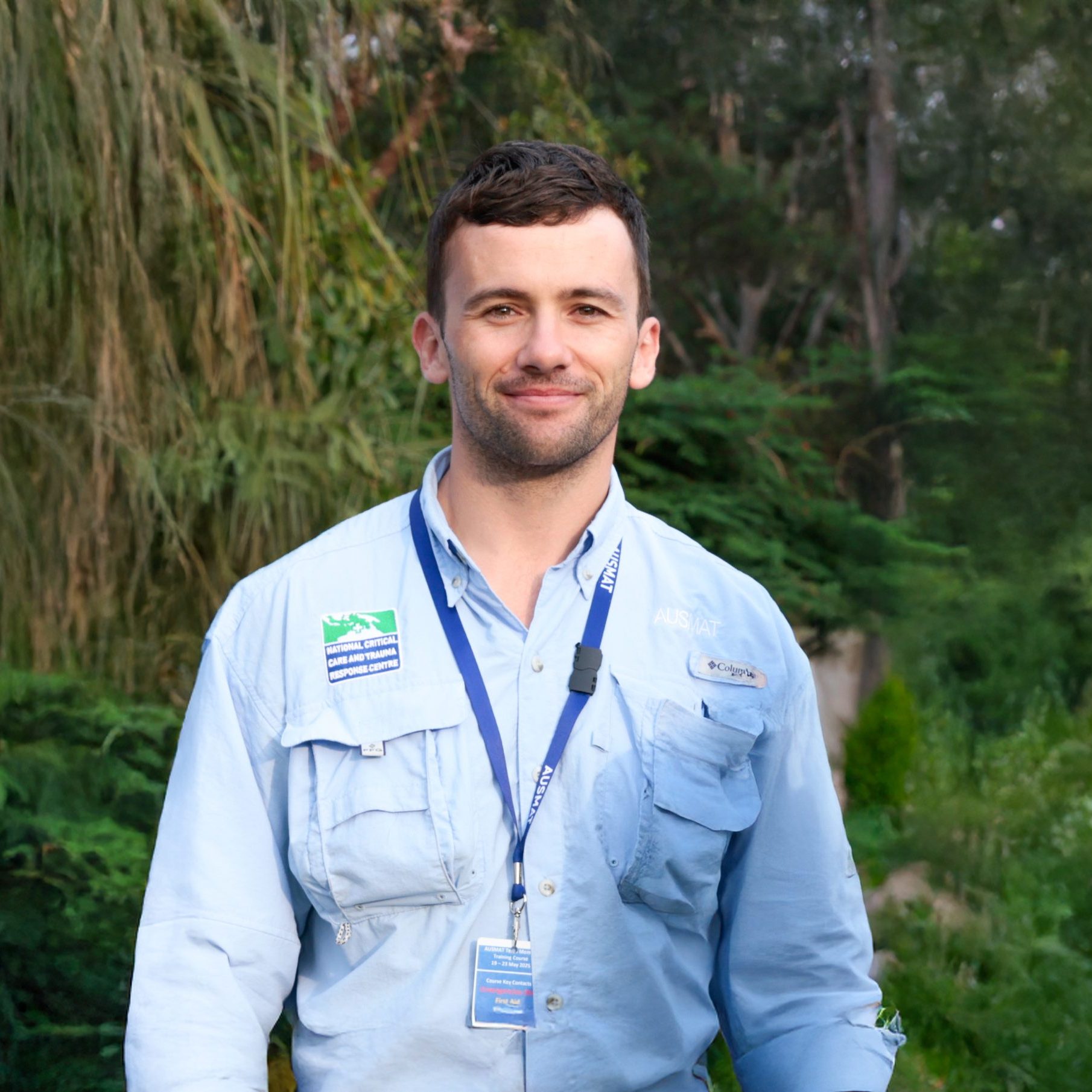
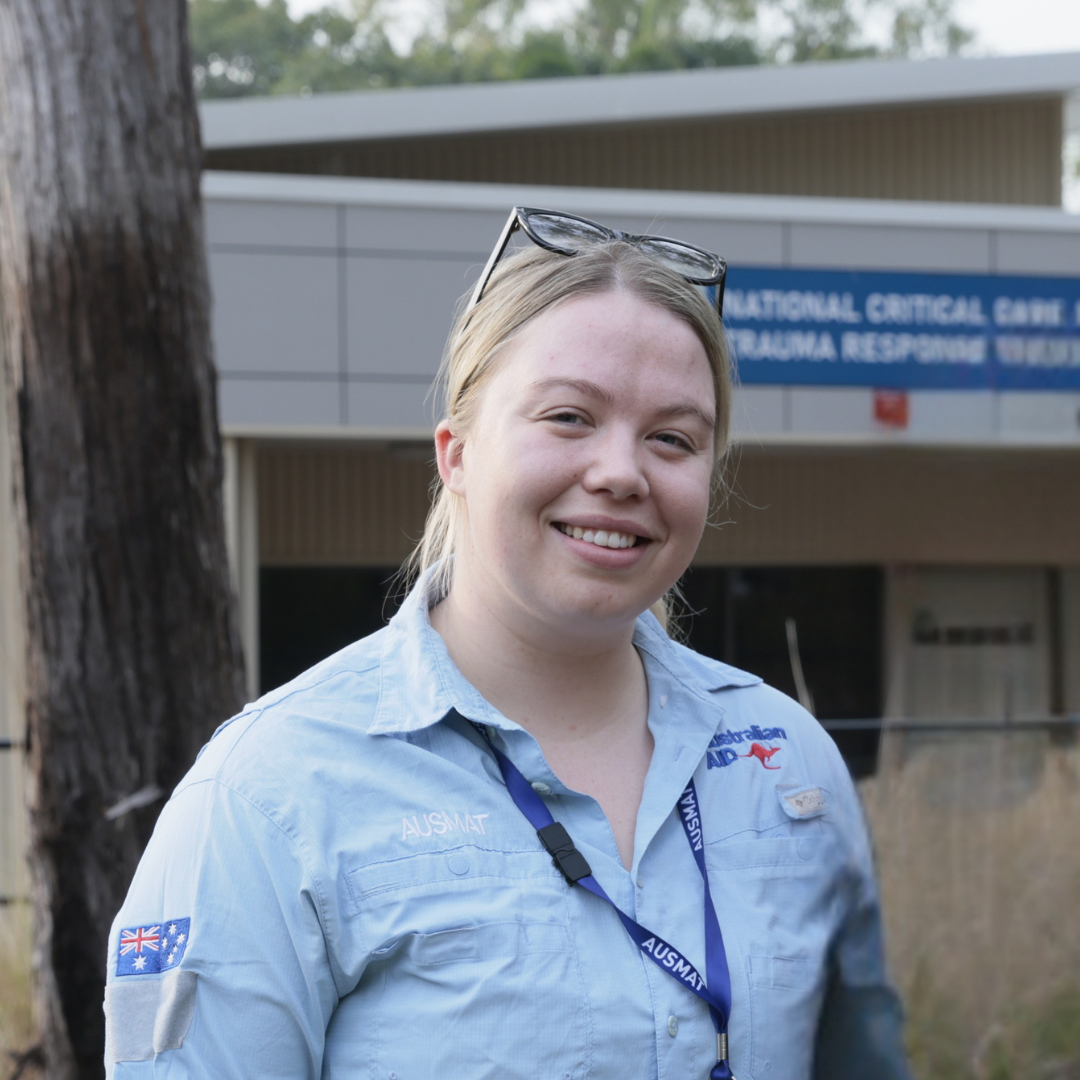
Sarah Sproule
Registered Nurse, Tasmania
For Sarah Spoule, a Registered Nurse from Tasmania, the AUSMAT Team Member Course was both exciting and daunting. Navigating unfamiliar terrain — both literally and figuratively — meant she was especially grateful for the mentorship provided throughout the course.
“My mentor helped me prepare mentally and physically, including what to pack for deployment,” Sarah says. “Coming from Tasmania, I was unsure about the residential component in Darwin, so her reassurance was incredibly helpful.”
Sarah was paired with Monique Anninos, Advanced Nursing Director Network Operations Centre (NOC) at the Women's and Children's Health Network (WCHN). Drawing on her own experience responding to the 2019 Samoa measles outbreak, Monique offered practical advice to help Sarah prepare for training in Darwin’s tropical climate.
“Darwin can be hot and humid,” Monique explains. “Heat management is crucial and staying hydrated is the number one priority.”
That guidance proved valuable during the five-day residential component, but it was not just the physical environment Monique helped Sarah navigate, she also emphasised the mental resilience and adaptability needed for deployments.
“The team is what gets you through,” Monique says. “AUSMAT fosters a one team approach that is supportive and encourages learning, which is evident through the investment in members through these courses.”
Monique’s advice — to listen to your body, recognise the early signs of heat stress and lean on your teammates — left a lasting impression on Sarah.
Reflecting on the experience, Sarah says, “The support and encouragement I received transformed my uncertainty into confidence.”
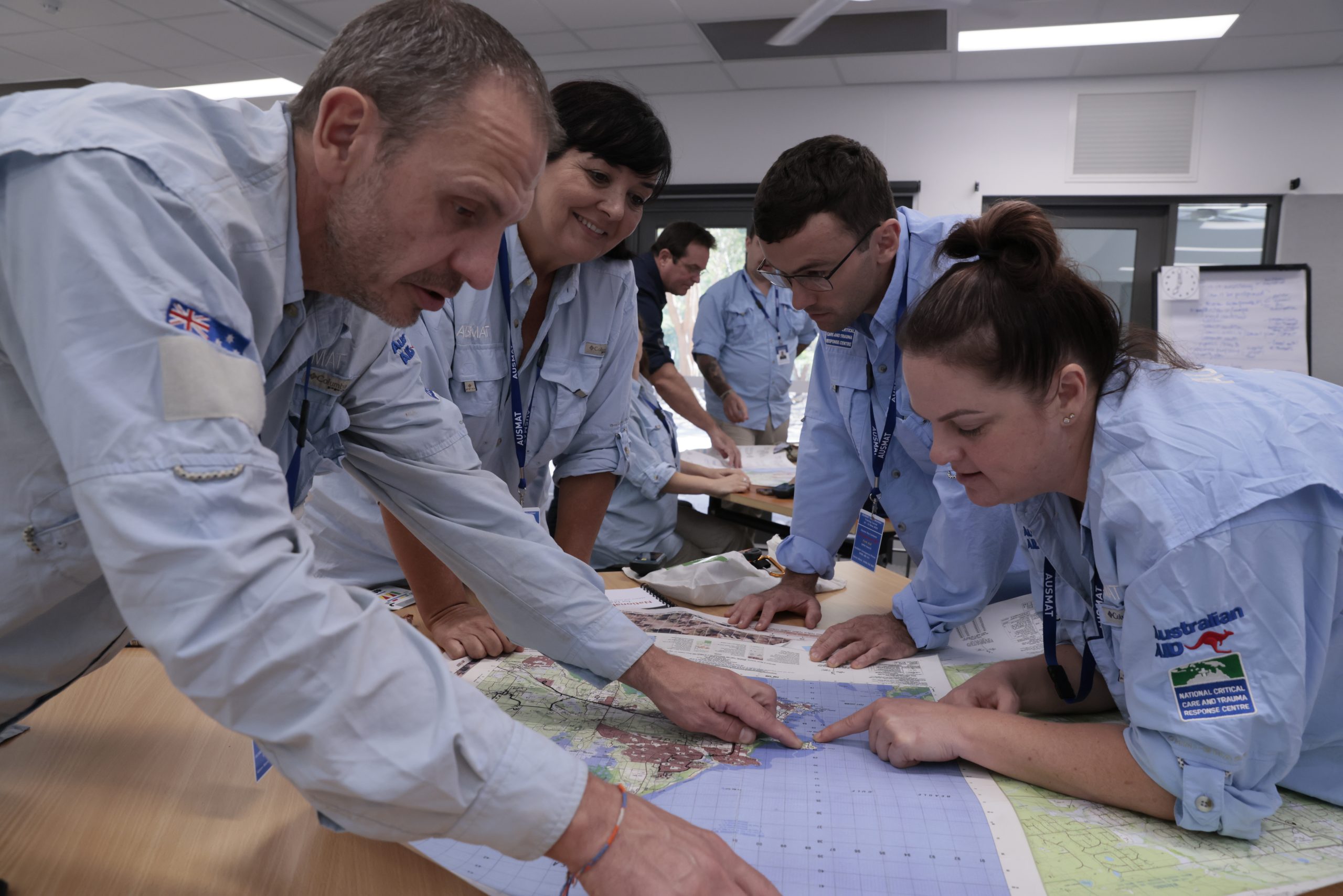
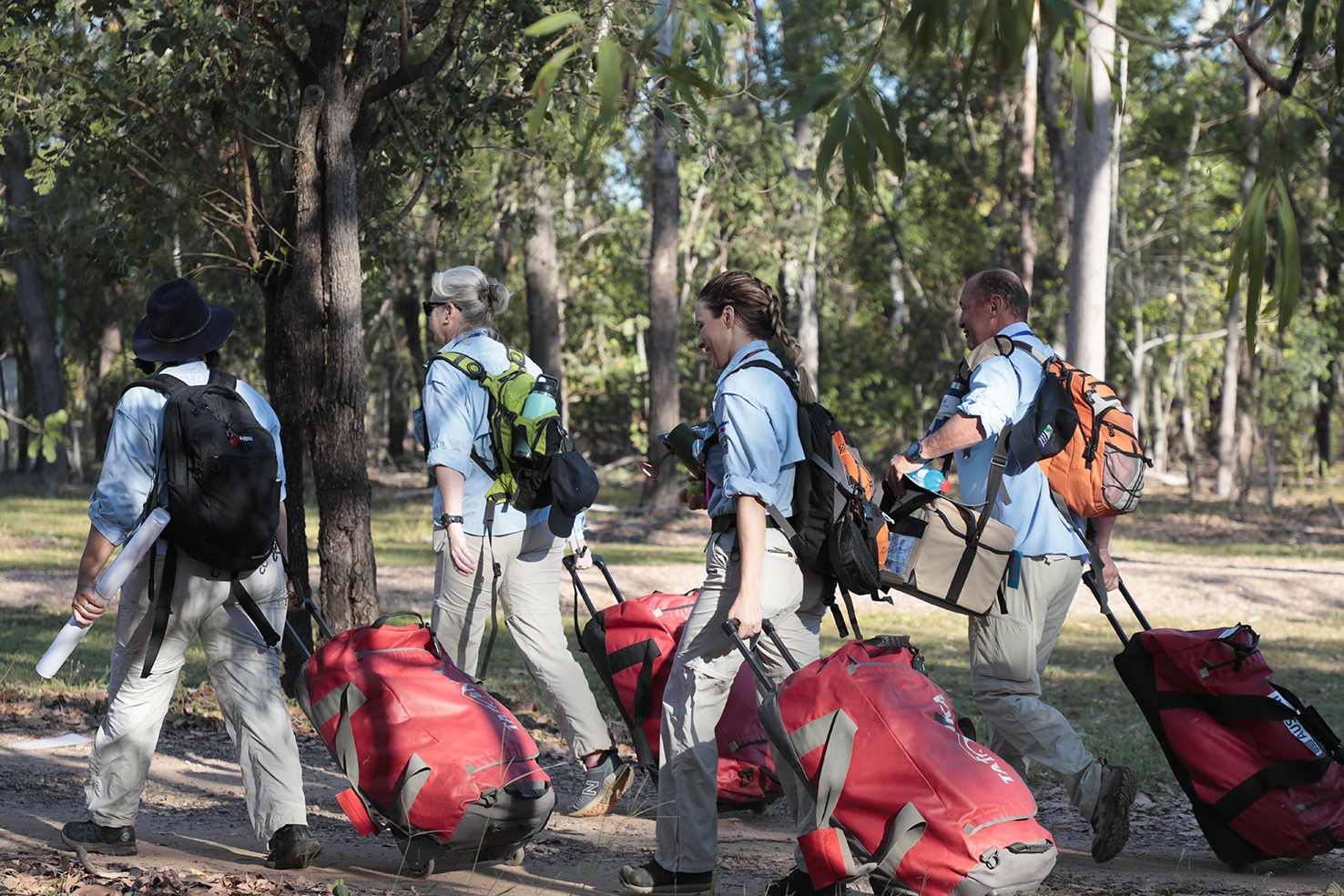
The AUSMAT Team Member Course is a critical part of the NCCTRC’s efforts to build a highly skilled, adaptable and deployable workforce for national and international health emergencies. The embedded mentoring program enhances technical training with personal experience and connection, reinforcing AUSMAT’s one team ethos.
"Mentorship not only helps new members navigate the course, but it also builds strong relationships that carry into deployment,” said Rhiannon.
Congratulations to the newest members of our AUSMAT family.


